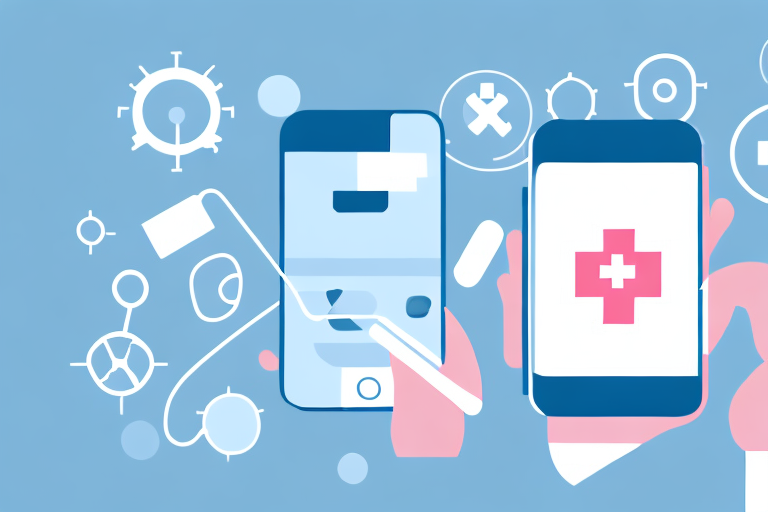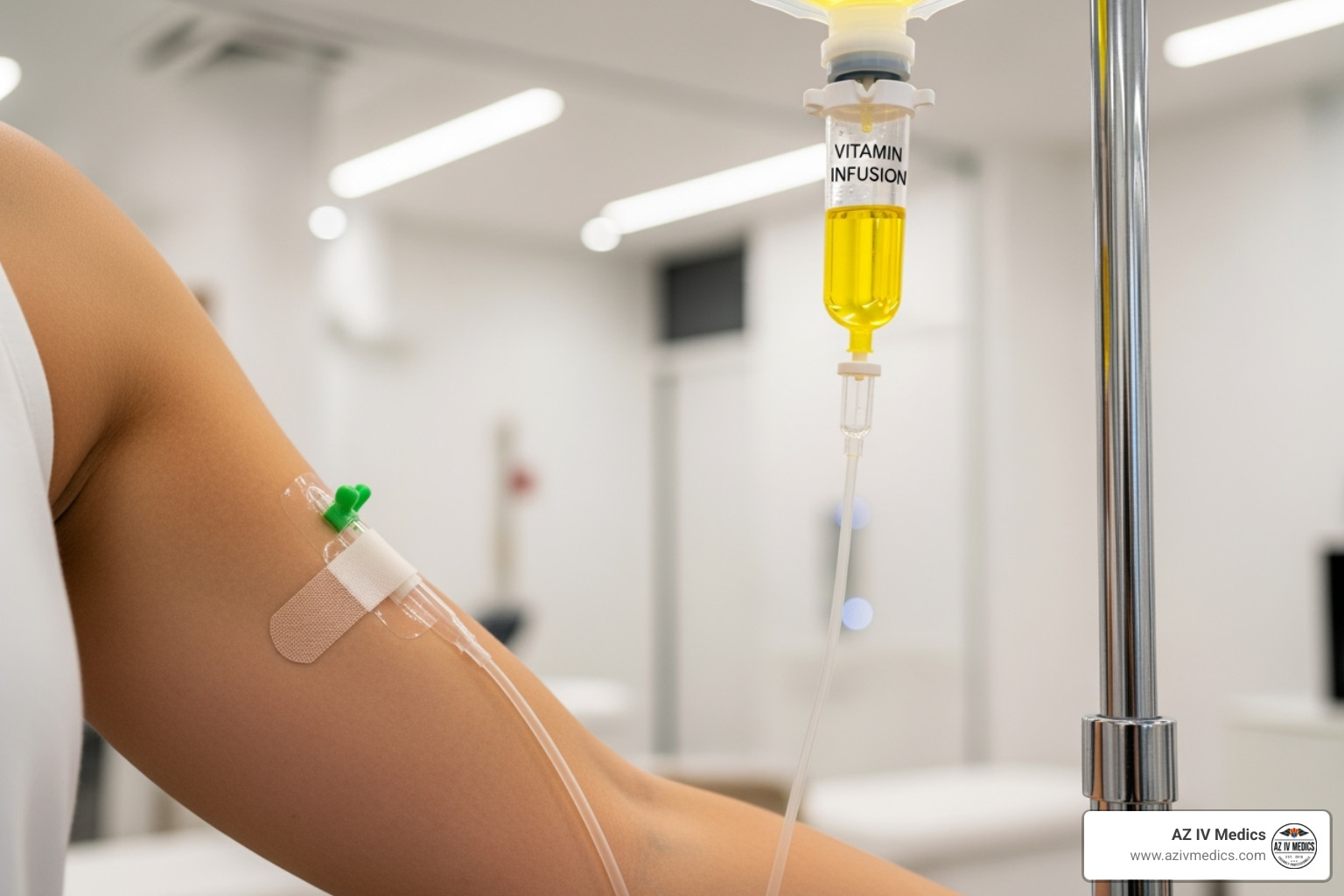The Benefits of Mobile Nursing: How It Enhances Patient Care
Joseph Lopez • May 23, 2023

As technology advances, so too does the healthcare industry. One of the most significant changes in recent years has been the evolution of mobile nursing. Nurses are no longer confined to traditional healthcare settings but are increasingly using mobile technology to deliver care to patients in a variety of settings. In this article, we will explore the benefits of mobile nursing and how it enhances patient care.
Understanding Mobile Nursing
Mobile nursing is the provision of healthcare services outside of traditional healthcare settings, using mobile technology. It involves nurses using smartphones, tablets, laptops, and other mobile devices to access patient information, communicate with other healthcare providers, and deliver care.
Definition and Overview
Mobile nursing is a relatively new concept that has emerged due to the popularity of mobile technology in all aspects of our lives. It allows nurses to deliver healthcare services outside the hospital, clinic, or doctor's office, ensuring that patients receive comprehensive care, regardless of their location.
Mobile nursing is particularly useful in rural areas where access to healthcare services can be limited. Nurses can use mobile devices to communicate with patients, provide education, and even monitor vital signs remotely. This can help improve patient outcomes and reduce the need for hospital readmissions.
The Evolution of Mobile Nursing
Mobile nursing has evolved significantly over the years, from the use of pagers to the adoption of smartphones and tablets. The use of mobile technology in nursing has revolutionized the way healthcare is delivered, making it more accessible and convenient for patients.
With the advent of mobile apps and telehealth platforms, nurses can now provide virtual consultations and even diagnose and treat certain conditions remotely. This has become especially important during the COVID-19 pandemic, where social distancing measures have made it difficult for patients to access traditional healthcare services.
Mobile nursing has also led to increased collaboration among healthcare providers. Nurses can use mobile devices to communicate with doctors, pharmacists, and other members of the healthcare team, ensuring that patients receive coordinated care.
However, there are also challenges associated with mobile nursing. Nurses must ensure that they are using secure networks and following privacy regulations when accessing patient information on mobile devices. They must also be proficient in using mobile technology and be able to troubleshoot any technical issues that may arise.
Overall, mobile nursing has the potential to improve access to healthcare services and enhance patient outcomes. As technology continues to evolve, it is likely that mobile nursing will become an even more integral part of healthcare delivery.
Advantages of Mobile Nursing for Patients
Mobile nursing has several advantages for patients, including:
Increased Access to Healthcare Services
Mobile nursing allows patients to receive healthcare services without having to travel to a hospital or clinic. This is particularly beneficial to patients with chronic conditions who require frequent monitoring and follow-up care. With mobile nursing, patients can receive care in the comfort of their own homes, which can be especially beneficial for patients who have mobility issues or live in remote areas.
For example, a patient with diabetes who lives in a rural area may have difficulty accessing healthcare services. With mobile nursing, a nurse can visit the patient at home to monitor their blood sugar levels, provide education on managing their condition, and ensure that they are taking their medications properly.
Personalized and Holistic Care
Mobile nursing allows nurses to provide personalized and holistic care to patients. They can assess the patient's environment, lifestyle, and social support system to develop a care plan that addresses the patient's needs and goals.
For example, a patient with heart disease may benefit from a care plan that includes dietary changes, exercise, and stress management techniques. A mobile nurse can work with the patient to develop a plan that is tailored to their individual needs and preferences.
Reduced Hospital Readmissions
Mobile nursing can help reduce hospital readmissions, as patients can receive follow-up care at home. This is particularly beneficial for patients who have undergone surgery or have a chronic condition that requires ongoing care.
For example, a patient who has had hip replacement surgery may require physical therapy and wound care after they are discharged from the hospital. With mobile nursing, a nurse can visit the patient at home to provide these services and monitor their recovery. This can help prevent complications and reduce the risk of hospital readmission.
Improved Patient Satisfaction
Mobile nursing can improve patient satisfaction by allowing patients to receive care in the comfort of their own homes. It also allows patients to have more control over their healthcare, which can improve their overall experience.
For example, an elderly patient who requires frequent medical appointments may find it difficult to travel to a hospital or clinic. With mobile nursing, the patient can receive care at home, which can be less stressful and more convenient. This can improve the patient's overall experience and satisfaction with their healthcare.
In conclusion, mobile nursing has several advantages for patients, including increased access to healthcare services, personalized and holistic care, reduced hospital readmissions, and improved patient satisfaction. Mobile nursing can help patients receive the care they need in the comfort of their own homes, which can improve their overall health and well-being.
Benefits for Healthcare Providers
Mobile nursing is a rapidly growing field that offers a range of benefits for healthcare providers. In addition to improving patient outcomes, mobile nursing can also benefit healthcare providers in several ways, including:
Efficient Use of Resources
One of the primary benefits of mobile nursing is that it can lead to more efficient use of resources. By eliminating the need for nurses to travel to different locations, mobile nursing allows nurses to spend more time delivering care. This can help healthcare providers to better allocate their resources and improve the overall quality of care.
Mobile nursing can also help to reduce costs associated with travel and transportation. By eliminating the need for nurses to travel to different locations, healthcare providers can save money on transportation costs and reduce the amount of time that nurses spend away from their patients.
Enhanced Collaboration and Communication
Mobile nursing can also enhance collaboration and communication among healthcare providers. By using mobile devices to communicate with other providers in real-time, nurses can improve the coordination of care and ensure that patients receive the best possible treatment.
Mobile nursing can also help to improve communication between patients and healthcare providers. By using mobile devices to communicate with patients, nurses can provide more personalized care and ensure that patients are fully informed about their treatment options.
Opportunities for Professional Growth
Mobile nursing can provide a range of opportunities for professional growth and advancement. By working in a variety of settings and developing new skills, nurses can increase their job satisfaction and advance their careers.
Mobile nursing can also provide opportunities for nurses to work with different patient populations and gain experience in a range of healthcare settings. This can help to broaden their perspective and improve their ability to provide high-quality care to patients.
Overall, mobile nursing offers a range of benefits for healthcare providers. By improving the efficiency of care delivery, enhancing collaboration and communication, and providing opportunities for professional growth, mobile nursing can help to improve patient outcomes and advance the field of healthcare.
The Role of Technology in Mobile Nursing
Technology plays a critical role in mobile nursing. It has revolutionized the way healthcare professionals provide care to their patients. The use of technology in mobile nursing has made healthcare more accessible and efficient, improving patient outcomes and quality of life.
Mobile nursing is a specialized field of nursing that involves providing care to patients in their homes or other non-hospital settings. The use of technology in mobile nursing has made it possible for nurses to provide high-quality care to patients in remote locations, without having to be physically present.
Telehealth and Remote Monitoring
Telehealth and remote monitoring technologies allow nurses to monitor patients remotely, ensuring that they receive the care they need when they need it. Telehealth involves the use of technology to provide healthcare services and information remotely. This can include video consultations, remote monitoring of vital signs, and the use of mobile health apps. Remote monitoring technologies allow nurses to keep track of their patients' health status and intervene when necessary. This is especially important for patients with chronic conditions who require ongoing monitoring and management of their health.
Telehealth and remote monitoring technologies have many benefits for both patients and healthcare providers. Patients can receive care in the comfort of their own homes, avoiding the need for hospitalization or frequent visits to healthcare facilities. Healthcare providers can monitor patients more closely and intervene when necessary, reducing the risk of complications and hospital readmissions.
Electronic Health Records
Electronic health records (EHRs) allow nurses to access patient information quickly and easily, leading to faster and more accurate diagnoses and treatment plans. EHRs are digital versions of patients' medical records, containing information such as medical history, medications, allergies, and test results. Nurses can access this information from anywhere, using a computer or mobile device. This allows them to provide more efficient and effective care to their patients.
EHRs also improve communication and collaboration between healthcare providers. Nurses can share patient information with other providers, such as physicians and specialists, ensuring that everyone involved in a patient's care is on the same page. This can lead to better coordination of care and improved patient outcomes.
Mobile Apps and Tools for Nurses
Mobile apps and tools designed specifically for nurses allow them to document patient care, communicate with other providers, and access medical reference materials on the go. These apps and tools can be used on smartphones or tablets, making it easy for nurses to access information and communicate with colleagues while on the move.
Some mobile apps for nurses include medication calculators, wound care guides, and symptom checkers. These tools can help nurses provide more accurate and efficient care to their patients. Mobile apps and tools also allow nurses to stay up-to-date with the latest medical research and best practices, ensuring that they are providing the highest quality care possible.
In conclusion, technology plays a vital role in mobile nursing. It has transformed the way healthcare is delivered, making it more accessible, efficient, and effective. Telehealth and remote monitoring technologies, electronic health records, and mobile apps and tools for nurses are just a few examples of how technology is improving patient care and outcomes in mobile nursing.
Challenges and Solutions in Mobile Nursing
Mobile nursing is a rapidly growing field that offers many benefits to both patients and healthcare providers. Nurses who provide mobile nursing services are able to deliver care to patients in their homes, workplaces, and other community settings, which can improve patient outcomes and reduce healthcare costs. However, there are also challenges that need to be addressed in order to ensure that mobile nursing is safe, effective, and sustainable.
Addressing Privacy and Security Concerns
One of the biggest concerns with mobile nursing is ensuring the privacy and security of patient data. When nurses are working outside of traditional healthcare settings, it can be more difficult to ensure that patient information is being kept confidential and secure. However, there are several solutions to this challenge.
First, healthcare organizations can implement secure communication channels, such as encrypted messaging or virtual private networks (VPNs), to ensure that patient data is transmitted securely between nurses and other healthcare providers. Second, organizations can ensure that patient data is stored securely, either through the use of secure cloud-based storage systems or by providing nurses with secure devices for storing patient information.
Ensuring Quality of Care
Another challenge with mobile nursing is ensuring that the quality of care provided is consistent with traditional healthcare settings. Nurses who provide mobile nursing services may not have access to the same resources and support as those working in hospitals or clinics, which can make it more difficult to provide high-quality care.
To address this challenge, it is important to provide proper training and certification for nurses providing mobile nursing services. This can include training on specific clinical skills, as well as training on how to work effectively in the field. Ongoing monitoring and evaluation of nurses' performance can also help to ensure that they are providing high-quality care and are able to identify areas for improvement.
Overcoming Barriers to Adoption
Finally, there are often barriers to adoption of mobile nursing services that need to be addressed in order to ensure that they are widely adopted and sustainable. These barriers can include resistance from healthcare providers or patients, lack of funding or resources, and challenges with integrating mobile nursing services into existing healthcare systems.
To overcome these barriers, it is important to address the unique challenges of each healthcare setting and to work with stakeholders to identify solutions that work for everyone. This can involve providing nurses with the necessary technology and support to deliver high-quality care in the field, as well as working with patients to educate them about the benefits of mobile nursing services and address any concerns they may have.
In conclusion, while there are certainly challenges to mobile nursing, there are also many solutions available to address these challenges. By ensuring the privacy and security of patient data, providing proper training and certification for nurses, and working to overcome barriers to adoption, we can create a sustainable and effective mobile nursing system that benefits both patients and healthcare providers.
The Future of Mobile Nursing
Mobile nursing is rapidly evolving, and its future looks bright. The field of nursing is constantly changing, and mobile nursing is no exception. As healthcare technology continues to advance, mobile nursing is poised to become an essential part of healthcare delivery. In this article, we will explore some of the innovations and trends that will shape the future of mobile nursing.
Innovations and Trends
The use of artificial intelligence, virtual reality, and other emerging technologies to enhance the delivery of care is one of the most exciting developments in mobile nursing. These technologies have the potential to revolutionize the way nurses provide care to patients. For example, artificial intelligence can help nurses to quickly identify patients who are at risk of developing complications, allowing them to intervene early and prevent serious health problems.
Virtual reality is another technology that is being used to enhance the delivery of care. By using virtual reality, nurses can provide patients with immersive experiences that help them to manage pain, reduce anxiety, and improve their overall well-being. Virtual reality can also be used to train nurses, allowing them to practice complex procedures in a safe and controlled environment.
Expanding the Scope of Mobile Nursing Services
The expansion of mobile nursing services to include a broader range of healthcare services, such as mental health, rehabilitation, and palliative care, is another trend that is shaping the future of mobile nursing. As the population continues to age, the demand for these services is likely to increase. Mobile nursing can help to meet this demand by providing patients with high-quality care in the comfort of their own homes.
Mobile nursing can also help to address the issue of healthcare disparities. By providing care to patients in underserved communities, mobile nurses can help to improve access to healthcare and reduce healthcare disparities. This is particularly important for patients who live in rural areas, where access to healthcare is often limited.
The Impact of Mobile Nursing on Healthcare Delivery
Mobile nursing has the potential to transform healthcare delivery, making it more accessible, convenient, and patient-centered. By providing care in patients' homes, mobile nurses can help to reduce the burden on hospitals and other healthcare facilities. This can lead to cost savings for patients and healthcare providers alike.
Mobile nursing can also help to improve patient outcomes. By providing patients with personalized care in their own homes, mobile nurses can help to improve patient satisfaction and reduce the risk of hospital readmissions. This is particularly important for patients with chronic conditions, who require ongoing care and support.
In conclusion, mobile nursing has several benefits for both patients and healthcare providers, and its future looks promising. While there are challenges that need to be addressed, the benefits of mobile nursing far outweigh the potential drawbacks. As technology continues to evolve, so too will the role of mobile nursing in delivering high-quality, patient-centered care.




